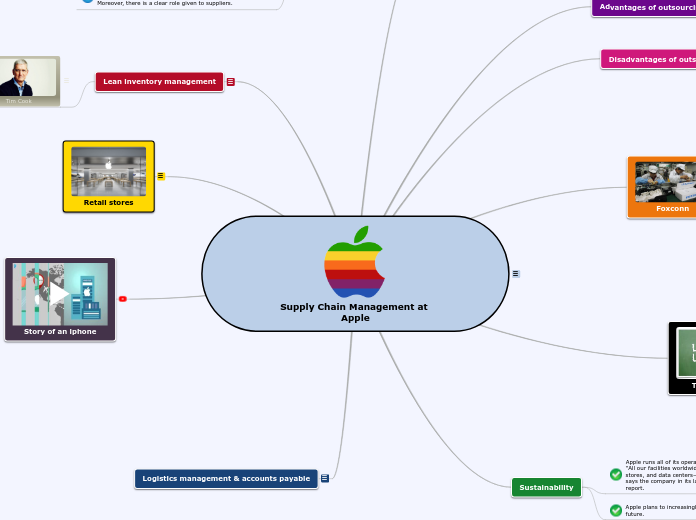
Supply Chain Management at Apple
Advantages of outsourcing
Disadvantages of outsourcing

Takeaways
Sustainability
Apple runs all of its operations 100% on renewable energies. "All our facilities worldwide—including Apple offices, retail stores, and data centers—are now powered entirely by clean" says the company in its latest environmental responsibility report.
Apple plans to increasingly invest in energy storage in the future.
A Tripple-A supply chain
Apple is agile and able to respond to short-term changes in demand or supply quickly thanks to its contract-manufacturing model (further detailed in "lean inventory management")
Apple is adaptable, using many intermediaries in its supply chain, creating the needs of its consumers (eg. iphone) and constantly establishing Apple stores in new countries to reach new markets.
Alignment is also a part of Apple's supply chain. Customers and vendors can easily and freely exchange at Apple stores. Moreover, there is a clear role given to suppliers.
Lean inventory management

Tim Cook

